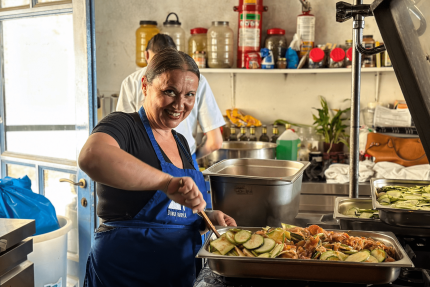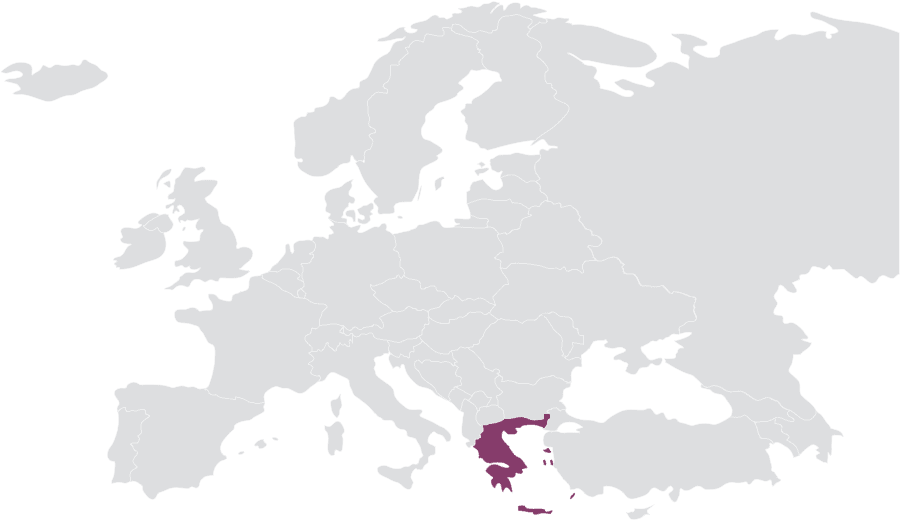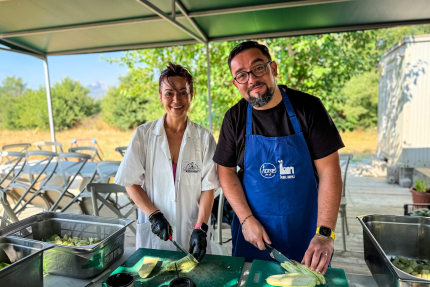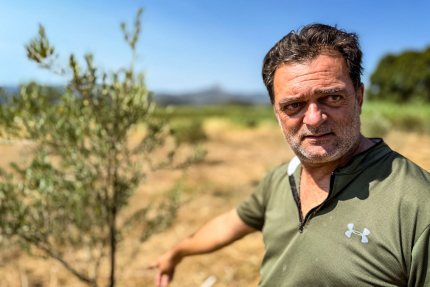Rohaja, from Afghanistan, is 15 years old. She arrived in Lesbos with her immediate family. We found her huddled in front of the entrance to her tent while we were visiting other residents of the camp with Ola, the doctor. At first, she did not pay any attention to us. She did not expect that representatives of some organisation strolling around the camp would be able to help her. No one has helped so far.
Before we offered support, we introduced ourselves, explained to her parents who we were, where we were from and what we were doing for the children in the camp. Rohaja’s mother finally looked us in the eye and for a brief moment a thin thread of trust connected us. The woman allowed Ola to enter the tent.
– I remember when I was 15 years old and about to finish primary school. Surrounded by the safe warmth of my family, I was making plans for the future, limited only by my imagination. Now my son is 15. He has even more opportunities and tools to feel like a citizen of this world, and the future in his mind is not limited by borders between countries. Rohaja’s life is permeated with fear and a sense of injustice that paralyses her daily life and does not allow her to dream at all,” mentions Ola.
When the doctor who was accompanying us entered the tent, the girl, with unprecedented sensitivity and modesty, apologised for the mess inside. Curled up in pain, she began peeling oranges, wanting to welcome her guest in the best way she could. She started talking about her story, her pain and her fears. She confessed that she could not stand being treated like an animal in a zoo. She did not understand the decision not to grant her father asylum. She cannot accept that someone could just decide that they must be separated. – Deportation is a death sentence for him – she uttered, struggling to hold back her tears. She finally described her ailments and let Ola examine her. When it was clear that we could help her, but needed to go fetch some specific medication, she said she would be waiting. However, it is hard to tell whether there was more hope or disbelief in her voice when she said those words.
We came back to see Rohaja the next day and her eyes could not hide her emotions – she was surprised. At first she was a little embarrassed that she had not fully trusted us. After a short visit, she promised to take her medication. She confessed that she had not been so happy in a very long time.
Our project on the Greek island of Lesbos is not just about feeding, treating and responding to the most urgent needs of the inhabitants of Europe’s largest refugee camp. Above all, it is about showing them that they are human beings, despite the spartan conditions and the harsh treatment imposed by the strict asylum rules in place.
Ola told Rohaja about her children. They exchanged phone numbers and will write to each other. Our medical mission is not only a physical, but mainly a mental strengthening that the people whom we met gained by having someone listen to them. Someone who noticed them and kept their word.
– When we hugged goodbye during our last meeting, she whispered that she would miss us and hoped to see us again, but in a completely different place. I am hopeful and happy that Rohaja has not only responded well to the medication, but that she has regained some hope as well. For now we will stay in touch – says Ola.





